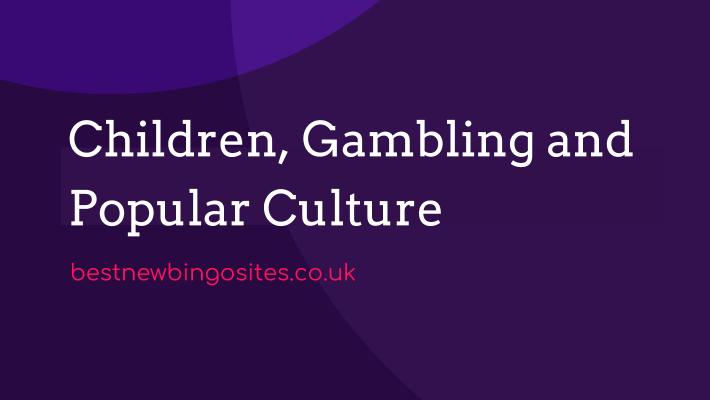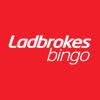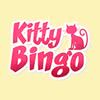
Children, Gambling and Popular Culture

-
Updated: 23rd Jan 2023
Are We Raising A Nation Of Problem Gamblers?
This article was first published in 2014 and many of the concerns raised have since become far more high profile. In particular, there is now international concern over blurred lines between gambling and video games, and the Gambling Commission has taken action against gambling games and advertisements that appeal to children and placed many restrictions on TV advertising of gambling products including online bingo sites. Organisations such as Gambling Watch UK aim to keep all these concerns in the public eye.
- How Smoking Was Marginalised
- Gambling and Popular Culture
- How To Gamble On Children’s Toys
- Online Games and Pseudo Gambling
- Uninformed vs Informed Gambling
- What about the Lottery?
- Gambling Or Not?
- The Way Forward
- Talk To Your Child About Gambling
How Smoking Was Marginalised
In the 1970s and 1980s it seemed cigarettes and smoking were everywhere – in films, on television, in advertisements, in every public place. We knew, by then, of the link between smoking and cancer, but smoking was so ingrained in our culture that not much notice was taken of that. Smoking was easy and convenient, and the fun thing to do.
Since then, many pieces of legislation have been enacted that systematically marginalise smoking and smokers. Punitive taxation, a ban on advertising and sports sponsorship, increasingly in-your-face health warnings on cigarette packs, increasingly graphic and scary anti-smoking advertising campaigns and the banning of smoking from enclosed public spaces and workplaces have all turned smoking from a mainstream activity to a fringe activity.
Gambling and Popular Culture
Things have gone in the opposite direction with gambling and children and youth today have grown up with gambling as a mainstream activity, not a marginal one only carried out by adults in betting shops – and there could now be a huge demographic time bomb waiting to go off, in the form of problem gamblers.
Our culture is stuffed full of readily available opportunities to gamble, most of which are heavily advertised on TV (over 500,000 showings of ads for online bingo alone during 2012, and almost 1.4 million ads for gambling in general according to Ofcom) and/or endorsed by celebrities.
Some months after this article was originally published, the industry responded to growing unease about TV advertising of gambling by setting up a new body, the Senet Group, as an industry watchdog. The four big bookmakers behind this initiative introduced some voluntary measures such as not showing TV ads for free bets or bonus money before the 9pm watershed, not advertising FOBT machines in betting shop windows and giving over 20% of betting shop window advertising to responsible gambling messages.
This is really the equivalent of the first health warnings being put on cigarette packets – a small step down a very long road indeed. And it’s not just TV advertising that is the problem anyway – our culture is also stuffed full of activities that aren’t legally classed as gambling, but have many of the same characteristics and crucially can give the punter the same buzz as real gambling.
How To Gamble On Children’s Toys
Consider the 8 year old child who collects Match Attax, or Gogos Crazy Bones, or even Lego minifigures. ALL these items are sold in mystery packs so you don’t know what you will get till you rip the packet open (although of course, in the case of these children’s collectibles you always do get something rather than nothing), and in every case there are super rare items that are only found in a very small number of packets.
Awfully like what happens when you buy a scratchcard, don’t you think? And how many of those 8 year old do you think have a proper understanding of just how unlikely they are to find Mr Gold in a Lego minifigure pack? For that matter, how many ADULTS have a proper understanding of just how unlikely they are to win the top prize on a lottery scratchcard? (This is surprisingly hard to work out as it depends on how many tickets have been sold and how many prizes remain, but it is generally millions to one and in some cases it has even been zero when cards have remained on sale after all major prizes have been claimed – whereas Mr Gold is more like thousands to one). And how many adults buy Lego minifigure packs AND scratchcards for their children to open and scratch off, without any discussion about the underlying probabilities?
Online Games and Pseudo-Gambling
Online gaming, too, is full of experiences that mimic gambling. For instance, many social media and phone/tablet games whose subject matter is otherwise nothing to do with gambling, have a spin the wheel or mystery box feature which requires a real money purchase to play (perhaps with a daily free spin or occasional free box to arouse players’ interest). Although one always gets something from such a spin or a box open, it is usually a common in game item that is not really worth the money paid. The desirable items are rare. An example of this is Castle Age, a fantasy MMO game on Facebook and iOS. The content of the game in general has absolutely nothing to do with casinos, betting or gambling, but there is an option to roll mystery chests to obtain premium items. These cost around £2.99 per roll (if bought with real money – the in game currency involved can be gained via gameplay but it is a long slow process) and there is a stated 5% chance of getting an epic item (players want those because they represent a substantial upgrade and can’t be gotten any other way). Most players seem to think that means that if they buy 20 rolls they are bound to get an epic item (though not necessarily the one they want as there are 4 different ones in each chest). The chance of getting at least one epic item in 20 rolls is actually around 65%. In practice, of course, there are many many cases of players spending hundreds or even thousands trying and failing to get a specific epic item – as the chance of getting a specific epic item in 100 rolls is only around 70%. The Castle Age app is rated ages 9+ on the AppStore for reasons that are nothing to do with gambling (art featuring scantily clad female warriors). Castle Age is somewhat unusual in that the chance of getting a rare item is explicitly stated – most games just classify certain prizes as rare or super-rare without specifying precisely what that means.
Like the children’s collectibles, these features are not legally classed as gambling because you can’t win real cash.
Then of course there are the games which DO have gambling as their subject matter such as DoubleDown Casino – where the age restriction is 13. The UK government has recently expressed concerns about the effects of social gambling games.
Uninformed vs Informed Gambling
The effect of all this is to trivialise gambling, and make it totally commonplace and part of mainstream culture. Worse still, the kind of gambling that is being trivialised is “uninformed” gambling. It’s “uninformed” because the gambler has neither any conception of what the odds are, nor any knowledge that might give him or her an edge, nor (sometimes) even any view of what he or she is doing as actually being gambling (as opposed to the skilled poker player, for instance, who is very much an “informed” gambler).
They vast majority of gamblers are not only uninformed, but are destined to remain so because they do not have a sufficiently good grasp of maths and probability to become informed. A good litmus test is the Monty Hall problem. Most people – including many with PhDs in mathematics – misunderstand the probabilities!
Or try this problem: For £10, you can enter a coin-tossing game. The coin has been tested and certified fair. In the game, the coin will be tossed 10 times. If all 10 are heads, you win £100,000. Would you enter? What about a game with the same stakes and prizes but where you are betting on 4 rolls of a dice all being 6? Would you enter that? Or is it better to spend the £10 on 10 scratchcards or 10 lines on a lottery ticket? The answer may surprise.
What about the Lottery?
So how did this happen? What has caused gambling to become such a commonplace activity? Is it the ready availability of online gambling, or could it be something else?
The National Lottery was established in 1994, and in 1999 (BEFORE online gambling became widely available) a study of around 10,000 12-15 year olds from 114 schools across England and Wales was carried out. A whopping 5.6% of them had some kind of a gambling problem – and despite being legally too young to gamble 13% had played the lottery and 19% had played fruit machines in the week prior to the survey.
The minimum age to play the lottery is 16 not 18 – and that’s the minimum age to buy a ticket or scratchcard legally; in the most recent survey carried out about underage players and the lottery a quarter of the children surveyed said they had bought a ticket or scratchcard legally because they were accompanied by an adult who paid (although a far smaller number did this every week).
So is the National Lottery (and its equivalent in other countries) really more acceptable (and less potentially harmful) than other forms of gambling? It’s government sponsored, so it must be, right?
Bad things about the National Lottery (as compared to other forms of gambling)
- Poor return to player (a necessary consequence of its raising money for good causes).
- Insufficient information available about the odds – buy a scratchcard and it tells you the overall odds of winning a prize of some kind, but not the chance of winning the big prize. You CAN, however, find that out from the National Lottery website.
- Addictive nature of scratchcards as described in this gambler’s story – he calls them “toxic enticements” .
- Pure chance – no skill involved.
Good things about the National Lottery (as compared to other forms of gambling)
- Extremely safe as it’s government sponsored.
- Low ticket price and relative infrequency of draws makes it hard for spending to get out of control on main draw tickets (easy to do it on scratchcards though).
- Proceeds (around 28% of the ticket price) go to good causes.
- Convenient and socially mainstream.
- Entertainment value of the televised draws.
- Some extremely large prizes on offer (albeit with corresponding extremely low probabilities).
Gambling or not?
Many players of the National Lottery do not even see it as gambling, any more than they see buying a raffle ticket in aid of a charity as gambling – because they genuinely don’t expect to win anything . That’s a fine and healthy attitude if that’s really what you think – but in that case, it does not make sense to buy more than one ticket for any draw because having multiple tickets does not appreciably increase the chance of winning. And it makes little sense to buy scratchcards at all. Scratchcards are indeed being bought though – instant play games are responsible for revenues of more than 2 billion pounds a year. That’s an average spend of getting on for £50 a year on lottery instant games for every member of the adult population of the UK.
It’s not just scratchcards – the National Lottery website features a number of no-skill instant win games which are included in the £2.6 billion of sales, so now you don’t even have to leave the house to indulge! The free trial versions of the instant win games were removed in 2008 as there was some concern that children might be progressing from the trial versions to the real-money versions – but they are back now (albeit requiring a login to play).
The way forward
So what’s to be done about all this? How can we stop our children, given that they are immersed in the culture of gambling from a young age and that can’t be stopped apart from by banning TV, the Internet, visits to newsagents and toy shops and even talking to other children in the playground, from ending up in front of a FOBT for hours at a time?
Banning gambling can’t provide an answer as long as the National Lottery exists – because the National Lottery IS gambling, and arguably harder gambling (especially scratchcards) than some other forms of it. What on earth kind of mixed messages would the government be sending out if it banned internet gambling on the grounds that it is dangerous, but allowed real-money instant games on the National Lottery web site?
Regulating gambling can help, but only in terms of consumer protection and damage limitation – the case for banning the FOBT machines is that it is possible to walk into a shop on the high street and lose thousands of pounds in an hour, and that the number of machines allowed and the maximum stake ought to be reduced. A problem gambler who no longer had access to those machines would still be a problem gambler, but their behaviour might then not have such a huge negative impact on those around them as they would have to expend more time and effort to lose the same amount of money.
Education has to be the answer (part of it anyway); GamCare (a UK charity which helps problem gamblers and their families) wants the PSHE curriculum in schools (Personal, Social, Health and Economic) to be amended to include material specifically about gambling, both as a health issue (alongside drugs, alcohol and tobacco) and as a personal finance issue (probability and risk management). This would be at Key Stage 4 – so for 14-16 year olds (which is arguably leaving it a bit late).
But staggeringly, GamCare also report that only 5% of parents would even consider discussing with their children the risks associated with gambling! That is just unbelievable! How is a child supposed to understand why it is OK to buy the mystery Match Attax packs (or online equivalent), but NOT OK to play on a FOBT (or online equivalent)? Both involve spending actual cash, so it’s not as simple as a distinction between real and make-believe! You can explain it to them….or they can find out the hard way…
Talk to your child about gambling
The ball is in your court. Suppose you are in a shop with your 10 year old child and they ask you to buy them a National Lottery scratchcard or ticket. What do you think you would do?
- Think it’s just a bit of fun, so buy it for them and let them scratch it off/watch the draw.
- Say no – because they are underage.
- Say no – because you disapprove of gambling.
- Use the opportunity to ask them what they think the chances of winning are and open a discussion about risk, reward and probability, if possible showing them the breakdown of where the lottery money goes. You might then buy the ticket or scratchcard (for yourself), involve them in watching the draw or revealing it and talk to them afterwards about how it made them feel.
We surely ought to be having a whole series of conversations with our kids like the one in option 4 – about Match Attax, Mr Gold, the mystery boxes in the online game, gambling ads on TV, the tombola and raffle at the school fete, the National Lottery, videos on YouTube of a slots progressive jackpot being won, the sweepstakes on the Grand National….the list goes on and on.
The International Center for Responsible Gaming – has an excellent downloadable advice sheet on talking to children about gambling and you can find further information and links on our Responsible Gambling page.
The answer to the coin-tossing problem
The chance of 10 heads is 1 in 1024 – and since the prize is 10,000 times the stake, this game is heavily skewed in the player’s favour with a theoretical RTP (return to player) of over 900%. You’ll still probably lose unless you play thousands of times though, as this game is extremely high variance (very infrequent but very large wins).
In the 4 rolls of the dice, the chance of 4 sixes is 1 in 1296 – so a bit worse than the coin tossing game, but still heavily skewed in the player’s favour with a theoretical RTP of over 700%.
The RTP in the lottery (another very high variance game) is less than a tenth of that!
At Best New Bingo Sites all of our reviews are completely honest and written by industry experts. We aim to present all our offers as transparently as possible with a full explanation of the terms and conditions. We receive commission from the sites we feature and this may affect how prominently they appear on our site and their position in our listings.






